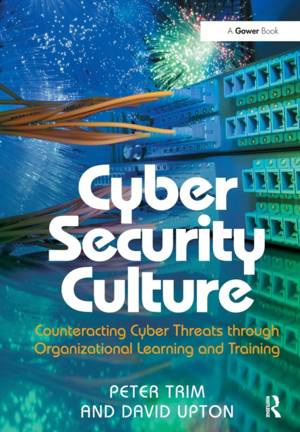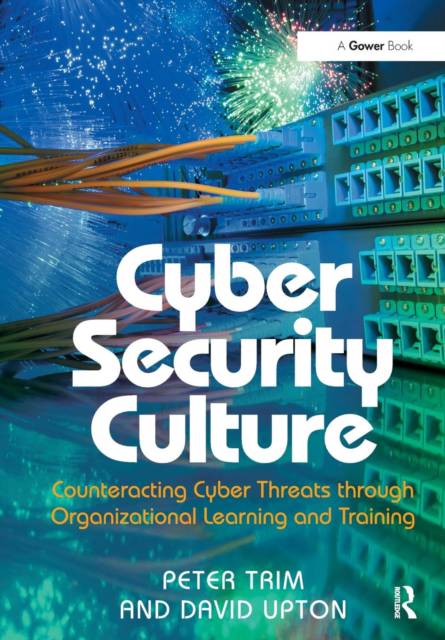
Je cadeautjes zeker op tijd in huis hebben voor de feestdagen? Kom langs in onze winkels en vind het perfecte geschenk!
- Afhalen na 1 uur in een winkel met voorraad
- Gratis thuislevering in België vanaf € 30
- Ruim aanbod met 7 miljoen producten
Je cadeautjes zeker op tijd in huis hebben voor de feestdagen? Kom langs in onze winkels en vind het perfecte geschenk!
- Afhalen na 1 uur in een winkel met voorraad
- Gratis thuislevering in België vanaf € 30
- Ruim aanbod met 7 miljoen producten
Zoeken
Cyber Security Culture
Counteracting Cyber Threats through Organizational Learning and Training
Peter Trim, David Upton
Paperback | Engels
€ 111,45
+ 222 punten
Uitvoering
Omschrijving
Focusing on countermeasures against orchestrated cyber-attacks, Cyber Security Culture is research-based and reinforced with insights from experts who do not normally release information into the public arena. It will enable managers of organizations across different industrial sectors and government agencies to better understand how organizational learning and training can be utilized to develop a culture that ultimately protects an organization from attacks. Peter Trim and David Upton believe that the speed and complexity of cyber-attacks demand a different approach to security management, including scenario-based planning and training, to supplement security policies and technical protection systems. The authors provide in-depth understanding of how organizational learning can produce cultural change addressing the behaviour of individuals, as well as machines. They provide information to help managers form policy to prevent cyber intrusions, to put robust security systems and procedures in place and to arrange appropriate training interventions such as table top exercises. Guidance embracing current and future threats and addressing issues such as social engineering is included. Although the work is embedded in a theoretical framework, non-technical staff will find the book of practical use because it renders highly technical subjects accessible and links firmly with areas beyond ICT, such as human resource management - in relation to bridging the education/training divide and allowing organizational learning to be embraced. This book will interest Government officials, policy advisors, law enforcement officers and senior managers within companies, as well as academics and students in a range of disciplines including management and computer science.
Specificaties
Betrokkenen
- Auteur(s):
- Uitgeverij:
Inhoud
- Aantal bladzijden:
- 240
- Taal:
- Engels
Eigenschappen
- Productcode (EAN):
- 9781138276642
- Verschijningsdatum:
- 16/11/2016
- Uitvoering:
- Paperback
- Formaat:
- Trade paperback (VS)
- Afmetingen:
- 170 mm x 244 mm
- Gewicht:
- 390 g

Alleen bij Standaard Boekhandel
+ 222 punten op je klantenkaart van Standaard Boekhandel
Beoordelingen
We publiceren alleen reviews die voldoen aan de voorwaarden voor reviews. Bekijk onze voorwaarden voor reviews.









